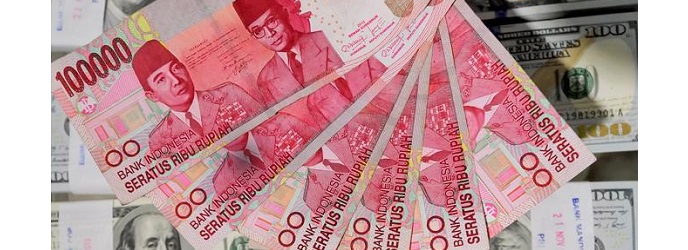Tax Amnesty Program Indonesia: Investment Instruments II
The government of Indonesia is preparing various investment instruments in order to absorb the (potentially large) inflow of capital following the launch of the tax amnesty program earlier this month. Besides government bonds, state-owned enterprises' bonds, real estate investment trusts (REITs), and property investment through private equity schemes (RDPTs), the government is also preparing trustees and zero coupon bonds. Without such investment instruments, bubbles are expected to appear due to the large inflow of funds into Indonesia's financial markets.
Earlier, the Indonesian government stated that some IDR 4,000 trillion (approx. USD $305 billion) is assumed to be secretly stashed abroad by Indonesian individuals and companies. Through the tax amnesty program (which is designed to run from July 2016 to March 2017) it is made attractive (through tax incentives and government promises not to prosecute) for tax evaders to come clean, declare offshore assets, and - if desired - repatriate these into Indonesia.
Indonesian Finance Minister Bambang Brodjonegoro said a trustee enables the owner of the funds to make an agreement with a bank to store/invest the funds in specific instruments for a specific return. As such, the bank is the third-party that administers these assets. Another interesting instrument is the zero-coupon bond that, according to Brodjonegoro, has never been used in Indonesia. A zero-coupon bond (or accrual bond) is a debt security that does not pay interest but is traded at a deep discount, rendering profit at maturity when the bond is redeemed for its full face value.

In line with statements made by Bank Indonesia, Finance Minister Brodjonegoro emphasizes the risks of a suddenly strongly appreciating rupiah exchange rate brought about by the inflow of excessive funds into Indonesia as a result of the tax amnesty program. An overvalued rupiah will weaken the competitiveness of Indonesia's export products. Strong appreciation can be prevented by putting the inflows into specific investment instruments that would not require the foreign funds to be exchanged into rupiah. This is possible through a trustee, Brodjonegoro added.
Bank Indonesia official Nanang Hendarsyah said the central bank has also prepared investment instruments to absorb liquidity, including Bank Indonesia (foreign-denominated) bonds and notes, as well as short-term commercial paper and negotiable certificates of deposit (NCDs).
Read more: Tax Amnesty Program Indonesia Launched: Investment Instruments I
Moody's Investors Service and Morgan Stanley have responded positively to the news that Indonesia's House of Representatives (DPR) approved the tax amnesty bill in late-June 2016. Moody's stated that the tax amnesty program is credit positive for Indonesia as the program is part of the government's reform strategies that aim at boosting tax revenue. In January 2016, Moody's affirmed Indonesia's sovereign rating of Baa3/positive outlook (investment grade level). Weak government revenue is one of the key matters that blocks an upgrade in the nation's credit rating.
Indonesia's government revenue at 13 percent of the nation's GDP is the lowest among investment grade level economies. Meanwhile, government revenue declined in 2015 due to weak oil and gas receipts. Moreover, Indonesia has to deal with a weak tax system (weak monitoring and enforcement). Only some ten million Indonesians pay income tax, while there are only 27 million registered taxpayers (with the total population estimated at over 255 million individuals).

Although Moody's regards the tax amnesty program as a valuable tool to collect funds for the government's spending programs (particularly infrastructure and social development) and to relieve pressure on the budget deficit, it remains difficult to estimate the exact amount of inflows that will be generated given the uncertain global economic environment and because the bill does not set tougher enforcement mechanisms (for example by imposing higher penalties in case individuals or companies do not comply with Indonesian tax laws).
Inflows from the tax amnesty program would relieve pressure on Indonesia's government budget deficit, which was recently widened from 2.1 percent to 2.5 percent of GDP (closer and closer toward the 3 percent of GDP limit).
Morgan Stanley stated that asset repatriation could amount to approximately four percent of GDP, assuming an overseas asset base of USD $200 billion, assuming that 60 percent of these assets are declared, and assuming that 30 percent of the declared assets are repatriated into Indonesia.
Do you think that Indonesia's tax amnesty program will be a success?
Voting possible: -
Results
- Yes, I do (50.6%)
- No, I don't (32.8%)
- I don't know (16.6%)
Total amount of votes: 2421
-
